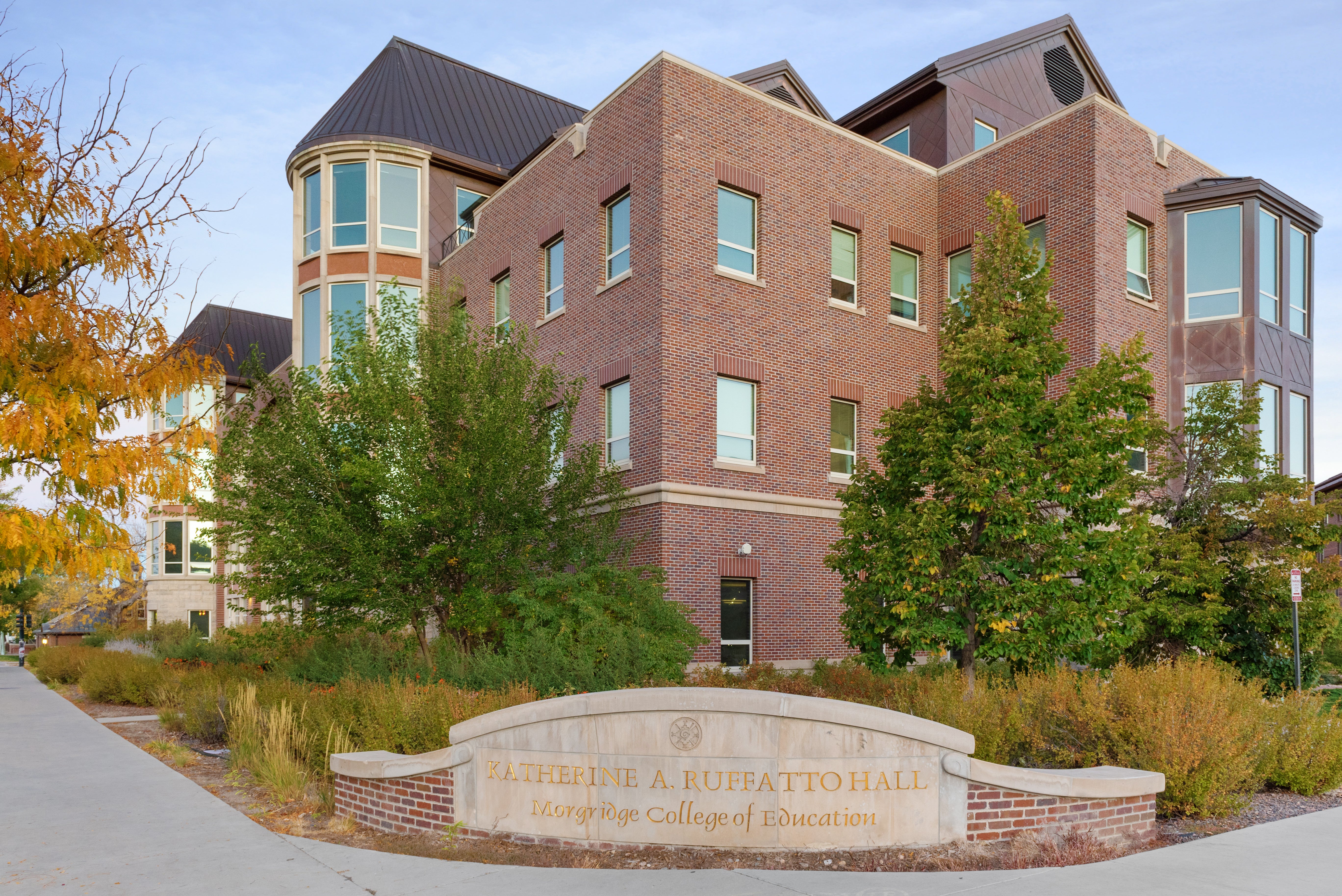Library and Information Science ALA Accreditation
The following provides achievement data for the Master of Library and Information Sciences program within the Morgridge College of Education at the University of Denver.
MLIS Program Achievement Data
The following provides achievement data for the Master of Library and Information Sciences program within the Morgridge College of Education at the University of Denver.
NOTE: The University of Denver launched an online MLIS program in Spring 2019.
Retention Rates
| On Campus | Online | All Students |
2018-19 | 85% | 89% | 87% |
2019-20 | 100% | 91% | 92% |
2020-21 | 88% | 88% | 88% |
2021-22 | 94% | 94% | 94% |
2022-23 | 94% | 77% | 80% |
2023-24 | 71% | 74% | 74% |
2024-25 | 100% | 95%* | 98%* |
NOTES:
MLIS On Campus Cohorts: TOTAL N: 39 (2018-19), 16 (2019-20), 26 (2020-21), 17 (2021-22), 16 (2022-23), 14 (2023-24), 20 (2024-25)
MLIS Online Cohorts: TOTAL N: 86 (2019-20), 100 (2020-21), 96 (2021-22), 87 (2022-23), 58 (2023-24), 20 (2024-25)
*ONLINE: The online MLIS program enrolls new students each quarter (4x per year) and given this admissions cycle, one year retention rates may reflect partial academic year cohorts.
RETENTION DEFINITION: Starting for the 2023-24 cohort, retention is measured based on whether a student was retained one year later based on enrollment. It does not consider students that are active but not enrolled or on a leave of absence. Prior to this cohort year, students were considered retained if they were found to be enrolled in a course, on a leave of absence, or otherwise active, but not enrolled in a course at the one-year mark.
Two-, Three-, and Four-Year Graduation Rates by Cohort
| Two Years | Three Years | Four Years | |||
| On Campus | Online | On Campus | Online | On Campus | Online |
2017-18 | 63% | N/A | 77% | N/A | 81% | N/A |
2018-19 | 49% | 26% | 69% | 85% | 77% | 89% |
2019-20 | 69% | 17% | 88% | 73% | 88% | 78% |
2020-21 | 62% | 29% | 69% | 70% | 77% | 78% |
2021-22 | 59% | 19% | 82% | 69% |
|
|
2022-23 | 69% | 36% |
|
|
|
|
2023-24 | 50% | 39%* | ||||
NOTES:
ALL STUDENTS (CAMPUS) TOTAL N: 48 (2017-18), 39 (2018-19), 16 (2019-2020), 26 (2020-21), 17 (2021-22), 16 (2022-23) 14 (2023-24)
ALL STUDENTS (ONLINE) TOTAL N: 46 (2018-19), 86 (2019-20), 100 (2020-21), 96 (2021-22), 87 (2022-23), 58 (2023-24)
*ONLINE: The online MLIS program enrolls new students each quarter (4x per year) and given this admissions cycle, two-year graduation rates may reflect partial academic year cohorts.
Graduation rates are cumulative in the above charts and tables (i.e., the 16 students from the 2019-20 on-campus cohort who graduated within two years are also included in the three-year graduation rate).
GRADUATION YEAR COHORT: ALL STUDENTS
| On Campus | Online | Total* | |||
| # of Grads | Avg. Time To Degree | # of Grads | Avg. Time To Degree | # of Grads | Avg. Time To Degree |
2018-2019 | 32 | 1.78 |
|
| 32 | 1.78 |
2019-2020 | 28 | 1.97 | 1 | 1.18 | 29 | 1.94 |
2020-2021 | 21 | 2.29 | 36 | 1.96 | 57 | 2.08 |
2021-2022 | 24 | 2.35 | 69 | 2.22 | 93 | 2.26 |
2022-2023 | 15 | 2.30 | 65 | 2.30 | 80 | 2.30 |
2023-2024 | 18 | 2.45 | 74 | 2.41 | 92 | 2.42 |
2024-2025 | 14 | 2.42 | 64 | 2.49 | 78 | 2.48 |
NOTES:
Time-to-degree data reflects students who graduated between September 1st and August 31st.
*Total: Data reflects students graduating from both the on-campus and online programs.
Employment Status
The following data reflects MLIS students who graduated during the academic year listed. Status and salary data were collected by the University of Denver’s Career and Professional Development Office upon graduation and up to six months’ post-graduation.
Onsite & Online | 2017-18 | 2018-19 | 2019-20 | 2020-21 | 2021-22 | 2022-23 | 2023-24 | |||||||
Employment Status | # | % | # | % | # | % | # | % | # | % | # | % | # | % |
Employed Full Time | 21 | 72% | 25 | 84% | 11 | 38% | 18 | 32% | 36 | 39% | 42 | 53% | 25 | 27% |
Employed Part Time | 4 | 14% | 1 | 3% | 1 | 3% | 3 | 5% | 4 | 4% | 10 | 13% | 2 | 2% |
Service Military | 1 | 3% | 0 | 0% | 0 | 0% | 0 | 0% | 1 | 1% | 1 | 1% | 0 | 0% |
Faculty | N/A | N/A | N/A | N/A | 0 | 0% | 1 | 2% | 1 | 1% | 2 | 3% | 3 | 3% |
Continuing Education | 0 | 0% | 3 | 10% | 2 | 7% | 0 | 0% | 2 | 2% | 0 | 0% | 2 | 2% |
Seeking Employment | 3 | 10% | 1 | 3% | 1 | 3% | 5 | 9% | 8 | 9% | 17 | 21% | 11 | 12% |
Unknown/Non-Respondent | 0 | 0% | 0 | 0% | 14 | 48% | 30 | 53% | 41 | 44% | 8 | 10% | 44 | 48% |
|
|
|
|
|
|
|
|
|
|
|
|
|
|
|
Total | 29 |
| 30 |
| 29 |
| 57 |
| 93 |
| 80 |
| 87 |
|
Salary | 2016-17 | 2017-18 | 2018-19 | 2019-20 | 2020-21 | 2022-23 | 2023-24 |
Mean Salary |
|
|
|
|
|
|
|
Onsite | $44,928 | $42,697 | $46,000 | N < 3 | N < 3 | $64,270 | N < 3 |
Online | N/A | N/A | N/A | N < 3 | N < 3 | $56,700 | $56,679 |
Median Salary |
|
|
|
|
|
|
|
Onsite | $44,500 | $40,000 | $43,500 | N < 3 | N < 3 | $55,000 | N < 3 |
Online | N/A | N/A | N/A | N < 3 | N < 3 | $57,000 | $53,057 |
NOTES:
Unable to report salary data for the 2019-20 and 2020-21 MLIS graduating cohort due to small sample size. The 2024-25 cohort employment status data was not available at the time this report was published.


